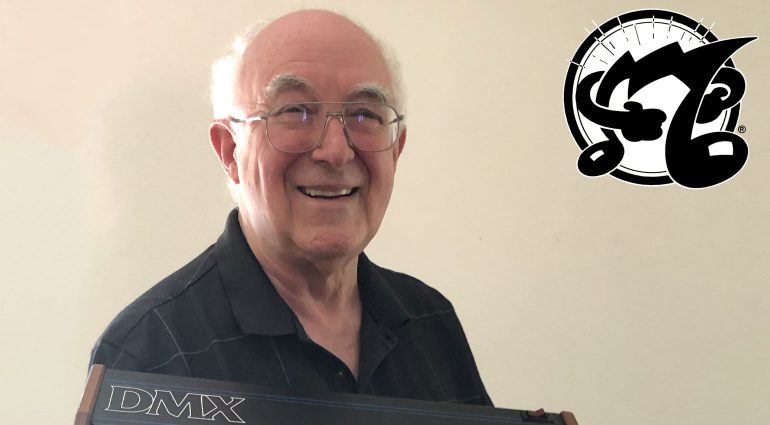Worldwide rights to Oberheim name returned to Tom Oberheim
Tom Oberheim has announced that after 36 years, the worldwide rights to the Oberheim trademark are now back with its founder.
Oberheim
The Oberheim name has appeared on some of the most loved synths and bits of gear from the history of electronic music. In 1975 Oberheim introduced the SEM (Synthesizer Expander Module) which then got tied together with other SEMs in the Four Voice and Eight Voice synthesizers, and introduced us to that now-classic SEM 2-pole filter. Other spectacular releases included the OB-1 which was the first completely programmable synthesizer, followed up by the OB-X and OB-Xa which are regarded as some of the most influential synthesizers ever made.

Oberheim OB-Xa
Let’s not forget Oberheim’s DMX drum machine which followed the groundbreaking Linn LM-1 and featured 24 drum sounds taken from 11 sampled sounds of real drums.
Despite the success, Oberheim went into administration in 1985 and was taken on by a group of lawyers. Tom left to found Marion Systems and the name moved on to be acquired by Gibson. During this time the name was used on products such as the re-release of the Matrix-1000, the Echoplex, the OB-Mx and while licensed to Viscount the digital OB-12 synthesizer.
In 2009 Tom returned to the synthesizer world with a new version of the SEM. He followed that up with a Four Voice and an updated version of the Two Voice called the Two Voice Pro. But he wasn’t able to use his old brand name or logo and so simply signed the synths “Tom Oberheim”. Tom collaborated with Dave Smith Instruments (Sequential) in 2016 to produce the polyphonic OB-6 synthesizer.
With Tom back on the scene and Gibson not doing anything with the brand, JC Curleigh, CEO of Gibson, returned the trademark and intellectual property back to Tom Oberheim as a gesture of goodwill in 2019. However, this only covered the USA and a few other countries. In the intervening time, Music Tribe Global Brands had registered non-US Oberheim trademarks along with many other synthesizer names and brands. They did attempt to register the name Behringer Oberheim in the USA but it was rejected by the patent office.
Behringer & Oberheim
So the final piece in this brand name journey was for Uli Behringer’s Music Tribe to do the decent thing and return the remaining rights to the original owner – and they now have.
“I was very happy after all these years to have regained ownership of some of the Oberheim trademarks,” said Tom Oberheim, Oberheim’s founder. “This led to the hope that someday I would be able to use my own name in all countries where the Oberheim trademark exists, so we contacted Music Tribe.”
“Tom Oberheim is a pioneer of analog synthesizers, and our whole industry owes him a debt of gratitude for his innovations,” said Uli Behringer, Founder of Music Tribe. “When we learned that Tom was still interested in making his own products with his original name, we knew the right thing to do was to transfer all of our Oberheim registrations back to him.”
“Thanks to Uli and the team at Music Tribe and Behringer, I own the worldwide rights to my name for the first time since 1985,” added Tom. “It is a wonderful homecoming, and it is a thrill to once again be able to have the Oberheim name and logo placed on my products.”
This is fantastic for Tom who has recently shipped a small run of his TVS-Pro Special Edition which carried the Oberheim brand in the USA. Now he has complete control over the use of his name.
Of course, Behringer is continuing to develop their UB-Xa clone of the Oberheim OB-Xa and so nothing has changed in regards to Behringer’s mission to clone all the synths. There are plenty of cynical voices out there referring to Behringer’s recent loss at court for use of the Auratone name, or that use of the Oberheim name outside of the USA is largely worthless, or perhaps that some collaboration deal has been struck in the background. However, I feel it’s a really welcome move from Uli Behringer that I hope fills him with so much positivity that he makes more decisions based on the right thing to do rather than simply what’s good for business and staying within the law.
The full statement is available on the Oberheim.com website and I’m really looking forward to what Tom could bring to market in the future.
8 responses to “Worldwide rights to Oberheim name returned to Tom Oberheim”

 5,0 / 5,0 |
5,0 / 5,0 | 









Well done Uli, absolutely the right and respectful action to take. Keep up the great work – we love what Behringer are doing and hopefully Behringer naysayers will recognise this gesture. I’ll never be able to afford a genuine Oberheim, Moog or Sequential product (at least not without Mrs iixorb noticing!) but best of luck to Tom Oberheim with hopefully a long, successful future with the Oberheim name back home.
I hope a partnership deal was struck between Mr. Oberheim and Behringer. That would be awesome in many ways and then some.
I quote
“, I feel it’s a really welcome move from Uli Behringer that I hope fills him with so much positivity that he makes more decisions based on the right thing to do rather than simply what’s good for business and staying within the law.”
It’s easy to say for you westerners. You don’t live in Africa where the minimum wage is… wait there is no minimum wage where I live. Do people in the west seriously think the third world can afford Moog or Sequential? No, but they can afford Behringer. Why should African be excluded from the possibility of buying synths? Well guess what, that’s what Uli Behringer does, he allows people living in Africa to afford hardware synthesizers. Of course, you privileged westerners never think about us, poor people on the other side of earth… You talk about moral when it’s convenient for you to claim you have the moral high ground, like always, then feign not being racist or classists on meaningless issues…
We don’t get everything we want in the Western world, either, and synths/musical instruments in general are LUXURY ITEMS. It doesn’t make every person who can afford those a racist because I cannot afford them.
I do think there should be a worldwide ‘minimum wage’. I do not think workers in, for example, China, should be exploited and that (plus I think ripping off other companies’ past hits isn’t right) is why I don’t buy Behringer. You are simultaneously celebrating human rights abuses for cheap products so that YOU can own them while complaining about the people who can afford nicer things than you can. You appear to be the same type of person you’re complaining about.
The horror! Think of the synthesizer-less children with nothing to plug into their P.A. systems!
What part of Africa are you from, Sam? Obviously it’s an enormous, diverse and populous continent filled with people at every level of living standard. I’m very familiar with most of the northwest, especially the coastal areas.
P.S. I’m surprised you used the phrase “third world”. Where I live it is considered inaccurate and dated and is not in use much anymore.
Wait… so you think it’s cool for people to be treated even worse just so you can play with knobs?
You have a problem that extends far beyond your financial issues. While you are criticizing the West for being out of touch, you seem to be quite out of touch with the West yourself. If you think everyone here can go out and drop $5000+ on a synth, you are delusional.
In Canada, 10% live below the poverty level. Another 47% on top of that live paycheck to paycheck, with nothing to spare. That means that roughly 2/3 of Canadians could not afford a Berringer let alone a real Moog or Oberheim. The dislike for Berringer comes from the fact that they are making a profit on someone else’s ingenuity. For some people that is an issue. For others, it is not. Some say he is a scoundrel and others say he is just a good business person (to me they are one and the same). But it is not because the west is trying to stifle other countries from purchasing synthesizers. Instead of coming here and throwing baseless accusations around, you might want to ask why people object to Berringer instead.
I’m glad Tom Oberheim and Uli Behringer aren’t at each other’s throats over branding issues. Let’s be honest, we want to see companies competing with each other respectfully for the greater musical good, not lynching each other over brand names. I’m glad Uli’s cloning the classics, Tom’s still making synths, Sequential is still trading under Focusrite, and Bob Moog, Rupert Neve, Alan Pearlman etc get the respect they deserve. It’s about the music and the gear!
You are currently viewing a placeholder content from Facebook. To access the actual content, click the button below. Please note that doing so will share data with third-party providers.
More InformationYou are currently viewing a placeholder content from Instagram. To access the actual content, click the button below. Please note that doing so will share data with third-party providers.
More InformationYou are currently viewing a placeholder content from X. To access the actual content, click the button below. Please note that doing so will share data with third-party providers.
More Information